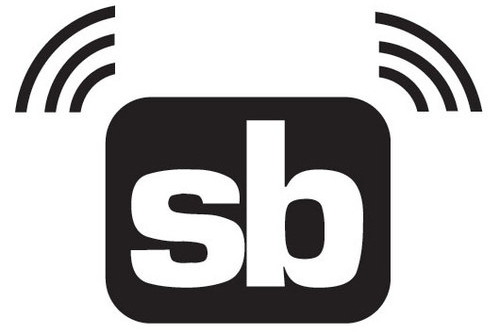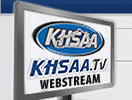08/23/23- Review Complete for End of Somerset-Perry County Central Football Contest
PrintFOR IMMEDIATE RELEASE: August 23, 2023
A statement from the Commissioner’s Office:
This information issues football playing rules interpretations and approved administrative remedies proposed by the local assigning secretary involving a crew of seven football officials following a misapplication of the playing rules in the first regular season contest last week between Perry County Central and Somerset on August 18. This review over the last couple of days and action by the local assigning secretary will result in an adjustment to the schedule for at least one future contest and future playoff assignments for the local association involved.
The review of the Somerset official team video is clear and indisputable as to the actions on the final play of the contest.
- Somerset attempted a field goal with the ball snapped at approximately the five-yard line, with the score 22-21 in favor of Perry County Central.
- On the play, Perry Central blocked the attempt which was recovered behind the line of scrimmage by the holder.
- Almost simultaneously with the recovery, the two officials covering behind the defensive line of scrimmage are shown blowing the whistle and signaling that the attempt was not good.
- By rule, the play is dead at that moment and the ball is no longer live and is unable to be advanced by anyone.
- By rule, this is an inadvertent whistle with the ball in possession of the holder who had made the recovery.
- The human error of the inadvertent whistle(s) is part of the game and is clearly covered by rules.
- What followed however, was clearly an error by the entire crew of officials as Somerset (the team last in possession when the whistle sounded) was not given an option of an untimed down due to the whistle as following the action, the officials left the playing field.
- In addition, the required game-ending protocol was not properly executed by the crew.
An inadvertent whistle is the nightmare of most officials but is able to be remedied by rule. However, any time these situations occur, the crew of officials must be able to properly administer the subsequent action, and this was not done in this instance. In this case, Somerset should have been given the appropriate options for the inadvertent whistle, which likely would have resulted in a replay of the down. While the recovering player advanced the ball, nothing that occurred after the whistle(s) would have resulted in a different result of the play.
The near chaotic scene and diverse actions of nearly everyone on the field on the video make it abundantly clear that there were many other people from both teams, including team members, coaches and others, who did not know or remember the rules related to field goals. At the high school level, a field goal attempt that is blocked and subsequently recovered by the kicking team behind the line of scrimmage can be advanced, which is different from the PAT (point after touchdown). While unfortunate that in most preparatory work for the season and in scrimmages, very few if any teams practice field goals during their activity with officials, there is little justification for everyone involved not knowing the subtle differences in these types of scrimmage kicks as part of rules study. This is a crew error, not an error by one individual official. Someone on that seven-person crew should have recognized the error and brought it to the crew’s attention in time for proper remedy.
However, there is no administrative remedy in the playing rules for this type of total human error following the contest as it is complete by rule. In every game there are moments where coaches would like to have a second chance to call a different play, players might like to have another chance to execute the block, run or pass; but those opportunities don’t exist. And it is certain, the officials would like to have a ‘do-over’ here, but there simply is no rules-based remedy. This time, there was a breakdown, and the bylaws and policies of the Association clearly, and appropriately, limit the Association board and staff and its ability to intervene with hundreds of contests that occur nightly, even when the administration of the play was terribly wrong.
As a result of this review, I have concurred with the assigner’s proposed adjustment in the schedule of the involved officials and a reduction in that association’s playoff allocation of games from 2022 levels. Our assigners do a tremendous job with accountability within their membership and this is another example. In addition, this incident is to be used for an immediate, intensive and comprehensive review of a variety of rules around the kicking game, and other facets to ensure that this does not recur. This by no means rights the wrong, but there is no other equitable alternative. And this by no means should detract from the accomplishments of either team going forward. Somerset made us aware of this situation immediately after the game and provided a very clear video for review in the matter.
The officials involved were from the Mountain Football Officials Association (MFOA). MFOA Assigning Secretary Kyle Maggard stated his own personal regret about the situation as well.
“We as an association have a long and proud history and feel we are widely recognized as an outstanding and constantly improving association for high school football in this state and beyond,” said Maggard. “However, we failed in this situation, and for that, I am truly sorry. We will renew our continued efforts to ensure that this type of situation is never repeated. This crew has nearly sixty years of experience and has worked very hard as my entire association to bolster our numbers and continue enhanced training and development. I fully support the Commissioner’s review and findings, and we will take this as an experience in which our service to students and schools will reach an even greater level of pride and success due to our efforts.”
The association will make no further comment regarding this situation and refers all those soliciting comment to the member schools.
-KHSAA-
About the Kentucky High School Athletic Association
The Kentucky High School Athletic Association was organized in 1917 and is the agency designated by the Kentucky Department of Education to manage high school athletics in the Commonwealth. The Association is a voluntary nonprofit 501(c)3 organization made up of 290 member schools, both public and non-public. The KHSAA awards 229 state championships to 59 teams and 178 individuals in 13 sports and six sport-activities, funds catastrophic insurance coverage for its more than 109,000 rostered member school student-athletes, provides coaching education and sports safety programs for more than 12,000 coaches and licenses and facilitates the distribution of training material for over 4,000 contest officials.
Print


















